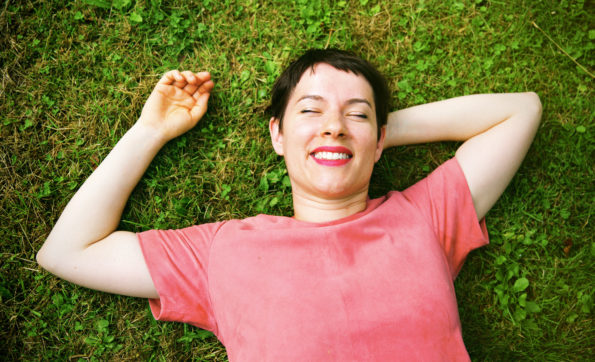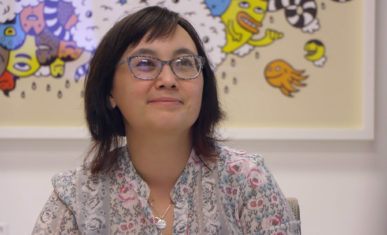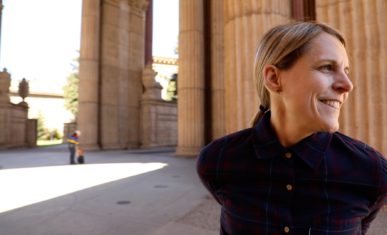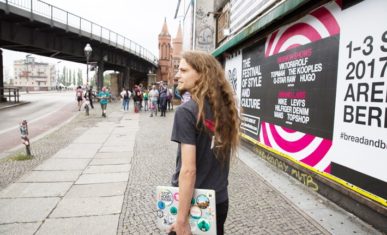Mozilla Foundation’s Solana Larsen, editor of the Internet Health Report, explains why a healthy internet is so important for our world. Why living a healthy and environmentally conscious life should also include consciousness of the digital biosphere. And how an unhealthy internet affects our personal life.
It’s like going through a magical ball: before entering it, there’s dusty air filled with dirt and the stressful moaning of a busy city – on the other side, though, a curtain lifts. The air clears, everything smells vibrant and verdant, a morning haze floats over the ground. Welcome to the garden colony at Plötzensee in Berlin-Wedding!
Here, where Berlin is more German than at many other spots in the city, Solana Larsen, editor of the Internet Health Report at Mozilla, has built a shelter. Her garden is wild and untamed, a very Berlin-y counterpoint to the traditional German allotment. A simple wooden cabin with a huge window front, a reed-fringed pond, lush and welcoming.
She jumps from her car with a smile that embraces the world. A smile that comes with being centered and content in yourself. It seems to be a contagious feeling. Maybe this is how it feels when your daily work has the power of changing the world for the better, the goal of making our Earth a healthy and loving place.
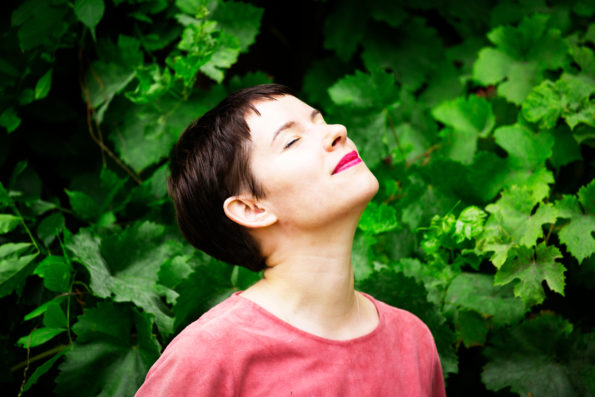
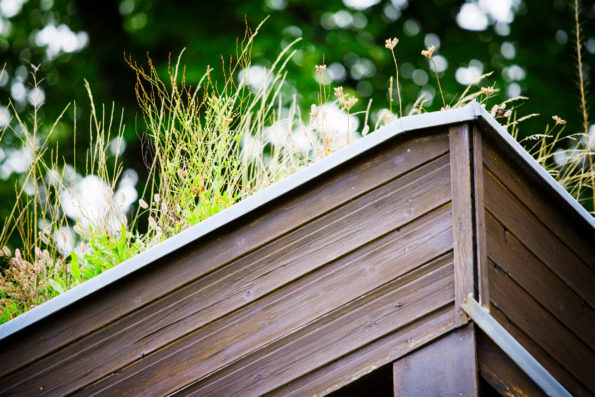
Born and raised in Copenhagen as a Danish-Puerto Rican, Solana always appreciated being able to have a choice, to do what feels right. She’s committed to keeping this opportunity open for everyone. That’s why she’s an activist who fights for a free and open web.
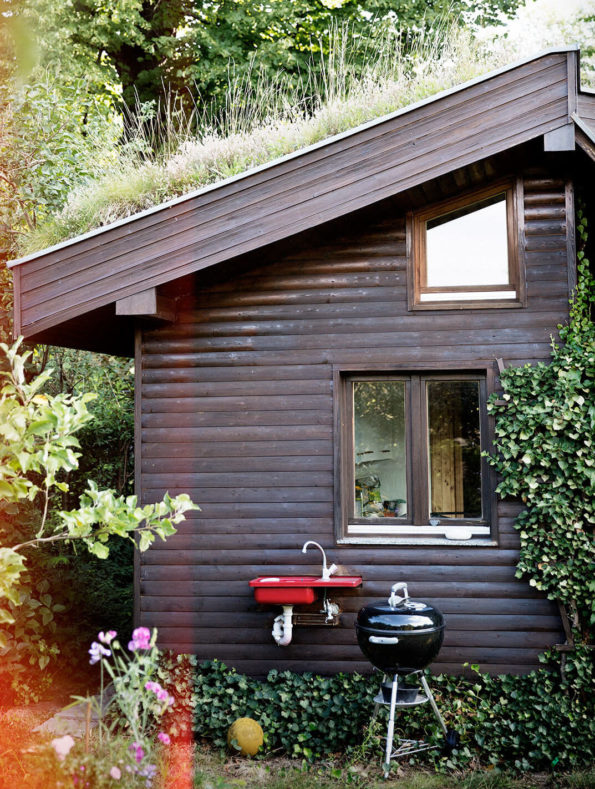
“I love to watch things grow,” says Solana. “My daughter, or the plants in my garden. To feel that I can contribute to a better world, being able to make a change – that’s happiness to me.”
The internet is also a growing entity. Look on it as a digital garden that’s based on the principles of ecological balance. We should care for it and keep it healthy, thinks Solana. Because that’s the only way we can benefit from the rich blossoms of the internet – and walk through them freely.
“In the early days, the internet was a place where people dreamt about its potential for good. It was almost like internet use came with a certain worldview, like ‘we are all human, we are all connected, let’s care about each other, let’s talk to each other’. For me, it was a window on the world, too. A freeing place,” she says.
Nowadays, the internet is also a space where commercial interests thrive. The open digital gardens, where creativity blooms and chances are available, are becoming ever more fenced in.
And how we deal with offline and online is ambivalent. We take more care of ourselves than ever. We think about what we eat, make sure we buy local and bio to save the environment and support our regional economy, or keep an eye on what we drink, to stem the tide of water privatization. And the internet? Isn’t it surrounding us, belonging to us, part of almost everything we do? Why wouldn’t we take care of it the same way?
“I think it’s really urgent. The internet is something we all have in our pockets. On our cell phones, in our homes, in the hands of our children. It’s everywhere now. And it makes it even more important to get it right,” says Solana. We need to protect it, keep it open because it’s an important building block of our global society.
